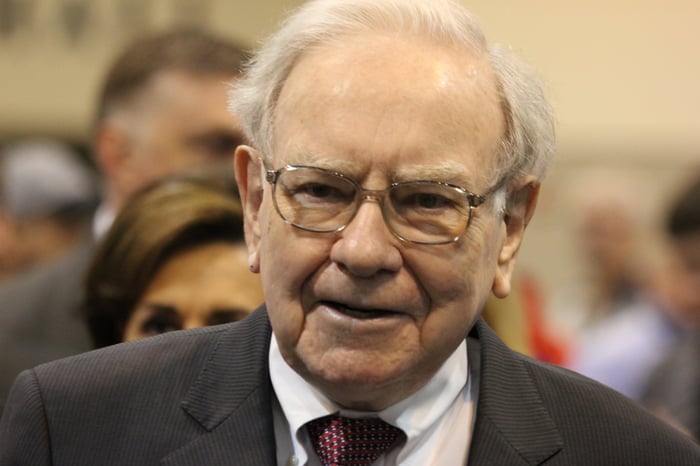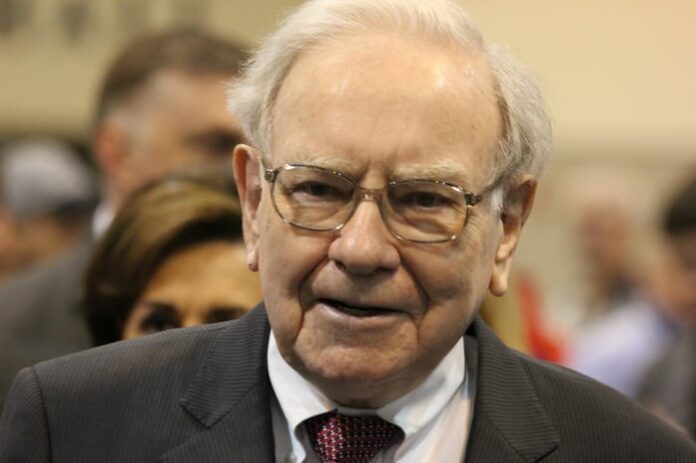Key Insights Ahead of Warren Buffett’s Anticipated 13F Filing
Investors are gearing up for a crucial day tomorrow, Nov. 14. This date is the deadline for institutional investors with at least $100 million in assets under management to submit Form 13F to the Securities and Exchange Commission.
Form 13F offers a summary of the stocks bought and sold by top money managers during the latest quarter, ending September 30. Though these filings come up to 45 days post-quarter, they still provide essential insights into the stocks and trends that interest leading asset managers.

Berkshire Hathaway CEO Warren Buffett. Image source: The Motley Fool.
The Anticipation of Buffett’s 13F Filing
Among all Wall Street 13F filings, Warren Buffett’s Berkshire Hathaway (NYSE: BRK.A)(NYSE: BRK.B) stands out. Since Buffett became CEO in the mid-1960s, Berkshire’s Class A shares (BRK.A) have soared over 5,600,000%. Therefore, investors eagerly await a glimpse into Buffett’s recent investment choices.
Berkshire Hathaway’s Selling Trend
Despite his generally positive outlook on the U.S. economy, Buffett has been a net seller of stocks for eight quarters in a row, from October 1, 2022 to September 30, 2024. During this period, he and his investment team, Todd Combs and Ted Weschler, have sold $166.2 billion more in stocks than they have purchased.
Sometimes, clues about Buffett’s actions surface before the formal 13F filing. For instance, Berkshire’s operating results always disclose the company’s top-five stock holdings. As of September 30, Berkshire’s fair value of Apple (NASDAQ: AAPL) was $69.9 billion, equal to approximately 300 million shares owned.
However, Berkshire owned 400 million shares of Apple as of June 30. This indicates that Buffett sold around 100 million shares in the third quarter—a continuation of his selling trend over the last four quarters.
Berkshire also holds more than a 10% stake in several public companies, necessitating the filing of Form 4 when shares are traded. In the last quarter, 13 Form 4s revealed that over 235 million shares of Bank of America (NYSE: BAC) were sold, bringing in about $9.61 billion. This selling trend has extended into the fourth quarter.
Given that more than $36 billion in securities were sold during the third quarter, it is evident that Apple and Bank of America are not Buffett’s only divestments.
1. Capital One Financial
One surprising move from the second quarter was Berkshire reducing its stake in Capital One Financial (NYSE: COF) by 21%, equating to about 2.65 million shares. Buffett typically does not significantly reduce stakes in large holdings, indicating that this trend may continue.
Two possible reasons could explain further sales: valuation and economic outlook. As of November 8, Capital One shares were valued at a 22% premium to their book value, a significant contrast to the historical average discount of 22%. Additionally, signs of a possible U.S. recession loom, which could affect financial stocks like Capital One.

Image source: Getty Images.
2. T-Mobile
Another likely candidate for further sales is T-Mobile (NASDAQ: TMUS). Berkshire’s latest 13F indicated a sale of 570,000 shares, a nearly 11% drop in holdings within three months. Historically, Buffett has not held telecom stocks for extended periods. Another reduction aligns with his past practices.
Additionally, T-Mobile’s valuation compared to rivals such as AT&T and Verizon Communications may have influenced this decision, as T-Mobile’s forward price-to-earnings (P/E) ratio of 22 is significantly higher than its competitors’ ratios of 10 or under. With forecasted sales growth slowing, Buffett may view T-Mobile as needing time to justify its valuation.
3. Louisiana-Pacific
The third stock that I predict Warren Buffett might have further reduced his stake in is likely Louisiana-Pacific (NYSE: LPX). The reasons behind this move can reflect similar concerns about valuation and economic trends impacting the building materials sector.
Louisiana-Pacific (NYSE: LPX) is a key player in providing siding and outdoor building solutions, primarily for new home construction. Recently, Warren Buffett’s team sold a cumulative 1.08 million shares of the company during the quarters ending in March and June.
Market Shifts Affecting Homebuilders
Louisiana-Pacific’s fortunes changed significantly when the Federal Reserve initiated a series of interest rate hikes beginning in March 2022. While higher mortgage rates led to a steep decline in existing-home sales, homebuilders began to offer discounts and financing incentives to attract buyers. This shift resulted in strong demand for new homes, causing Louisiana-Pacific’s stock to rise sharply.
Interest Rate Easing Changes the Landscape
However, the shift in monetary policy from the Federal Reserve signals a new chapter. As the central bank embarks on a rate-easing cycle, the positive momentum that homebuilders and their suppliers enjoyed amidst rising mortgage rates may be short-lived.
Valuation Concerns for Louisiana-Pacific
Another challenge for Louisiana-Pacific is its higher-than-average valuation, similar to what has been observed with companies like Capital One Financial and T-Mobile. Over the past five years, the company has maintained an average forward P/E ratio of slightly more than 10. Currently, shares are trading at almost 21 times forward-year earnings, which could be concerning for investors following Warren Buffett’s strategies.
Discover the Next Potential “Double Down” Stocks
Ever thought you missed your opportunity to invest in top-performing stocks? Don’t worry; there are chances ahead.
Our team of expert analysts occasionally identifies a “Double Down” stock—companies they predict are on the brink of significant growth. If you think you’ve missed your chance, now may be the time to invest before it’s too late. Consider these statistics:
- Amazon: If you invested $1,000 when we recommended it in 2010, you’d have $23,295!*
- Apple: If you invested $1,000 when we recommended it in 2008, you’d have $42,465!*
- Netflix: If you invested $1,000 when we recommended it in 2004, you’d have $434,367!*
We are currently issuing “Double Down” alerts for three remarkable companies, and opportunities like this may not come around again anytime soon.
See 3 “Double Down” stocks »
*Stock Advisor returns as of November 11, 2024
Bank of America is an advertising partner of Motley Fool Money. Sean Williams has positions in AT&T and Bank of America. The Motley Fool has positions in and recommends Apple, Bank of America, and Berkshire Hathaway. The Motley Fool recommends T-Mobile US and Verizon Communications. The Motley Fool has a disclosure policy.
The views and opinions expressed herein belong to the author and do not necessarily reflect those of Nasdaq, Inc.

